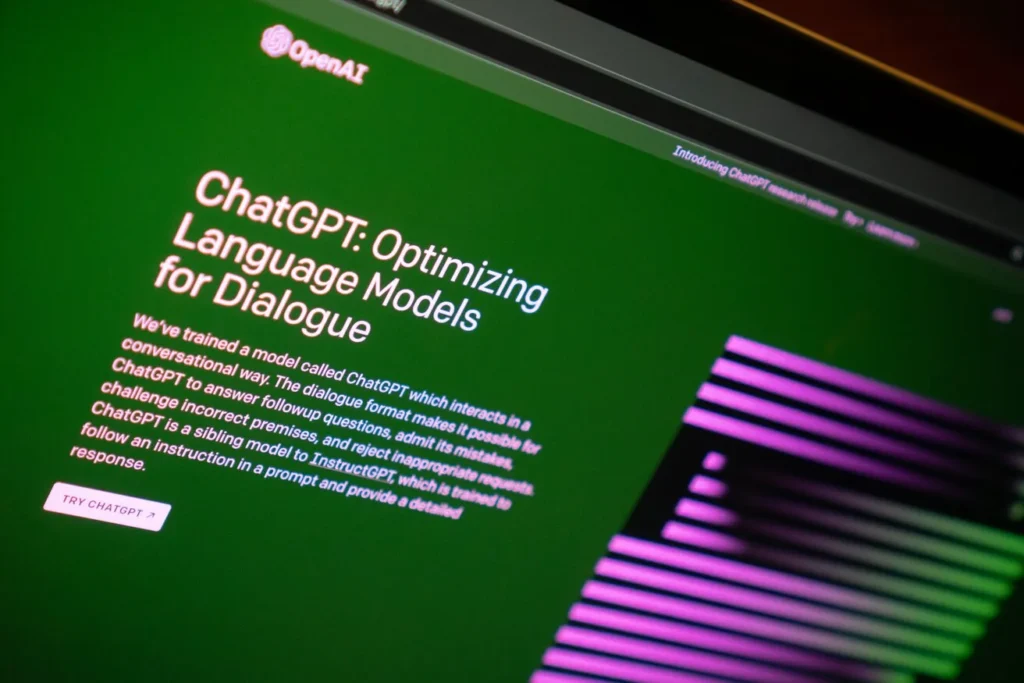Generative AI, an advanced form of artificial intelligence capable of creating unique content, designs, and solutions, is reshaping industries at an unprecedented pace, following the emergence of OpenAI’s ChatGPT. The applications of Artificial Intelligence span from content generation to drug discovery, making it a cornerstone of innovation in 2025.

Companies like OpenAI, Google DeepMind, and NVIDIA are already at the forefront, leading advancements in this field. Here, we explore the top business ideas leveraging generative AI to create value and drive growth in the coming year.
What Is Generative AI, and Why Does It Matter?
Generative AI refers to algorithms and models that produce new, unique data or content based on training datasets. Unlike traditional AI, which identifies patterns and provides predictions, generative AI creates something entirely new. For example, tools like ChatGPT generate human-like text, while DALL-E creates realistic images from textual descriptions. This capability opens doors to business opportunities across various sectors. OpenAI’s search feature is going to be a big deal in 2025.
Key Benefits of Generative AI
Efficiency: Automates repetitive tasks, saving time and resources.
Creativity: Produces innovative solutions and designs that were previously unimaginable.
Scalability: Delivers customized outputs at scale for diverse industries.
Top Business Ideas in Generative AI for 2025
AI-Powered Content Creation Platforms
Content creation is one of the most lucrative applications of generative AI. Businesses can leverage AI to generate articles, social media posts, videos, and even podcasts. For instance, Jasper AI provides tools for marketers and writers to produce high-quality content efficiently. In 2025, entrepreneurs could launch niche content platforms catering to specific industries like healthcare or education.
Potential Revenue Streams:
- Subscription-based models
- Licensing AI-generated content
- Advertising partnerships
Personalized Education Platforms
Generative AI is revolutionizing education by creating personalized learning experiences. AI can design customized lesson plans, quizzes, and study materials tailored to individual learners’ needs based on prompts. Companies like Coursera and Duolingo are already using AI for adaptive learning.
Key Features to Offer:
- Interactive AI tutors
- Real-time feedback for students
- Gamified learning experiences
Virtual Fashion and Design Studios
Fashion and interior design are being transformed by generative AI, which can create unique styles, patterns, and designs. Startups like Stitch Fix are using AI to personalize fashion recommendations. Entrepreneurs could build AI-driven design platforms to cater to fashion enthusiasts or interior decorators.
Monetization Strategies:
- Selling AI-generated designs
- Partnering with e-commerce platforms
- Offering subscription-based design tools
AI-Powered Healthcare Solutions
Generative AI’s ability to analyze complex data is revolutionizing healthcare. From generating synthetic patient data for research to creating personalized treatment plans, the opportunities are immense. Pharmaceutical companies like Pfizer are leveraging AI to accelerate drug discovery.
Opportunities for Startups:
- AI-driven diagnostic tools
- Personalized medication platforms
- Virtual health assistants
Synthetic Media Creation
Generative AI can produce hyper-realistic videos, images, and audio content. This technology is being used in the entertainment and advertising industries to create engaging media. DeepMind’s advancements in video generation and tools like Synthesia for AI-driven video production highlight the potential in this space.
Business Applications:
- AI-generated marketing campaigns
- Virtual influencers
- Film and gaming content creation
Real Estate Visualization Tools
Real estate businesses are leveraging AI to create virtual tours, floor plans, and 3D property designs. Generative AI can take this a step further by designing entirely new properties based on client preferences. Tools like Matterport have set a precedent for this industry.
Features to Offer:
- AI-driven property staging
- Customized architectural designs
- Interactive virtual tours
AI-Enhanced Cybersecurity Solutions
As cyber threats evolve, generative AI offers innovative ways to strengthen security systems. AI can simulate potential attack scenarios, identify vulnerabilities, and generate solutions to mitigate risks. Companies like Darktrace are already leveraging AI for this purpose.
Potential Services:
- AI-generated security protocols
- Real-time threat analysis tools
- Automated incident response systems
Financial Analysis and Planning Tools
Generative AI is transforming financial services by automating investment strategies, budgeting, and forecasting. Firms like BlackRock use AI to optimize portfolio management. In 2025, entrepreneurs could create AI tools for personalized financial planning.
Key Features:
- Custom investment recommendations
- Automated expense tracking
- Predictive financial insights
AI-Driven Legal Document Automation
The legal industry is ripe for AI disruption. Generative AI can draft contracts, analyze case law, and automate repetitive tasks. Companies like LawGeex are pioneering this field, offering tools to simplify legal processes.
Revenue Opportunities:
- Subscription-based legal software
- On-demand document drafting services
- AI-powered legal research tools
Generative AI in Gaming
The gaming industry is embracing generative AI to create immersive experiences. AI can generate unique game environments, characters, and storylines. Ubisoft and Epic Games are already exploring generative AI for game development.
Business Opportunities:
- AI-generated game assets
- Customizable gaming experiences
- AI-enhanced game development tools
Challenges and Ethical Considerations
While the potential of generative AI is vast, it comes with challenges:
Bias in AI Models: Ensuring fairness and diversity in AI-generated outputs.
Intellectual Property Issues: Defining ownership of AI-generated content.
Ethical Concerns: Avoiding misuse of generative AI, such as deepfake creation.
Conclusion
Entrepreneurs who embrace these technologies and address associated challenges will lead the next wave of digital transformation. By focusing on responsible innovation, the business world can harness the full potential of generative AI to create a more connected and efficient future.


